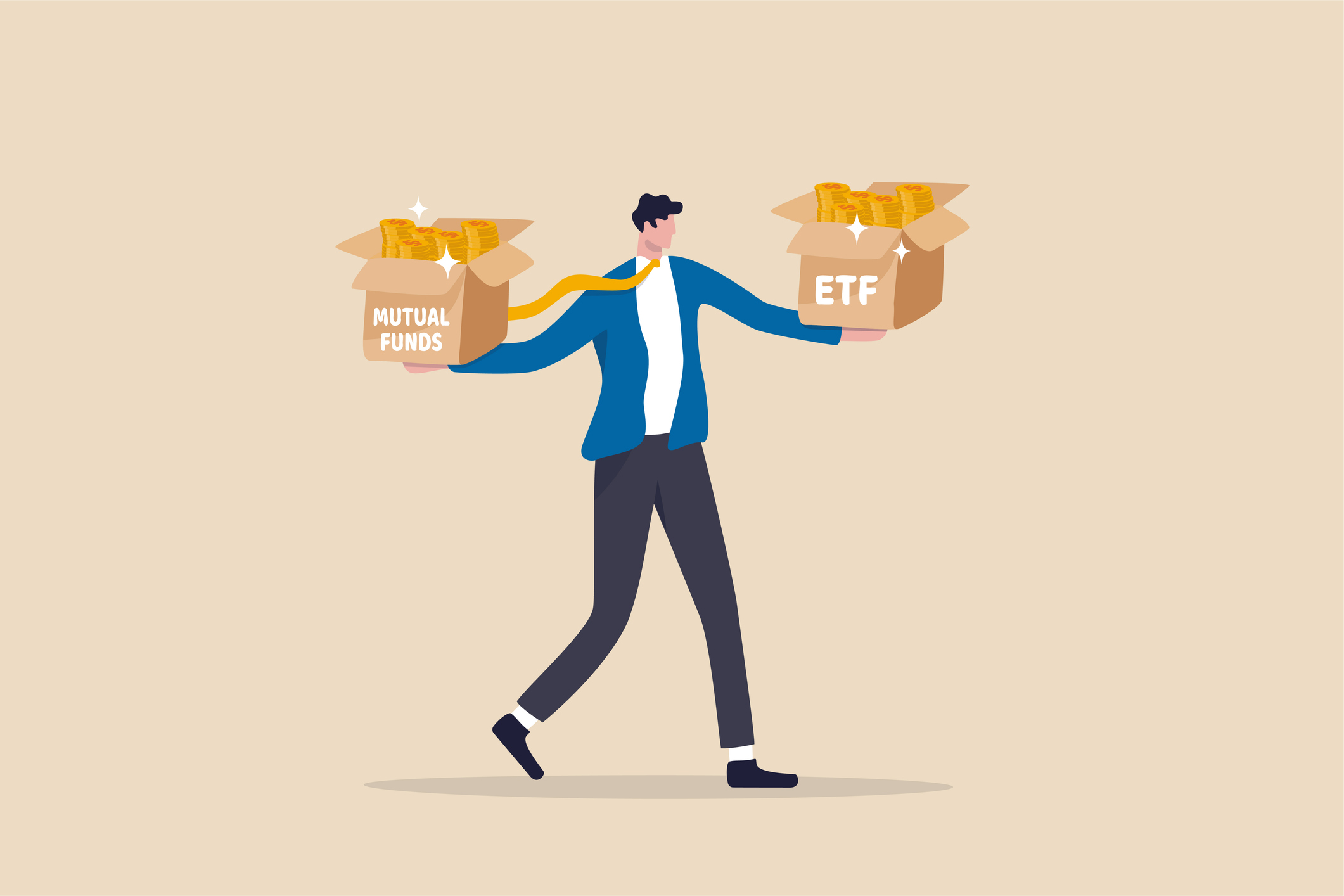5 Tips to Help Your Retirement Savings Last as Long as You Live
Avoiding one of the biggest retirement risks out there takes careful planning. Here are five ways to help make sure your retirement portfolio can go the distance.


Profit and prosper with the best of Kiplinger's advice on investing, taxes, retirement, personal finance and much more. Delivered daily. Enter your email in the box and click Sign Me Up.
You are now subscribed
Your newsletter sign-up was successful
Want to add more newsletters?

Delivered daily
Kiplinger Today
Profit and prosper with the best of Kiplinger's advice on investing, taxes, retirement, personal finance and much more delivered daily. Smart money moves start here.

Sent five days a week
Kiplinger A Step Ahead
Get practical help to make better financial decisions in your everyday life, from spending to savings on top deals.

Delivered daily
Kiplinger Closing Bell
Get today's biggest financial and investing headlines delivered to your inbox every day the U.S. stock market is open.

Sent twice a week
Kiplinger Adviser Intel
Financial pros across the country share best practices and fresh tactics to preserve and grow your wealth.

Delivered weekly
Kiplinger Tax Tips
Trim your federal and state tax bills with practical tax-planning and tax-cutting strategies.

Sent twice a week
Kiplinger Retirement Tips
Your twice-a-week guide to planning and enjoying a financially secure and richly rewarding retirement

Sent bimonthly.
Kiplinger Adviser Angle
Insights for advisers, wealth managers and other financial professionals.

Sent twice a week
Kiplinger Investing Weekly
Your twice-a-week roundup of promising stocks, funds, companies and industries you should consider, ones you should avoid, and why.

Sent weekly for six weeks
Kiplinger Invest for Retirement
Your step-by-step six-part series on how to invest for retirement, from devising a successful strategy to exactly which investments to choose.
Running out of money in retirement is a serious concern for many people. Most people envision retirement as a joyful time filled with leisure activities, traveling and other aspirations. However, when people quit working and earning an income, an uncomfortable reality sets in: They realize their savings need to last for the rest of their lives.
One of the biggest threats to your portfolio in retirement is called sequence of return risk. It’s the risk of depleting your portfolio due to withdrawing money during periods when the markets are falling. When you take money out of your portfolio during these times, your account losses snowball.
Whether you get a good sequence or bad when you begin your retirement is a matter of luck. You can’t control the direction of the market, but you can control how you react when your portfolio experiences a bad sequence.
Here are some strategies that may be effective in reducing the risk if you do run into a poor sequence.
Written by Matthew Stratman, a financial adviser at Western International Securities in Southern California. His focus is helping business owners and entrepreneurs who are planning for retirement. Matt is extremely passionate about retirement planning, believing the better prepared a person is, the more fulfilling their retirement will be.

1. Diversify to reduce the volatility within your portfolio.
When a portfolio is highly concentrated in a single asset class it may be more vulnerable to economic shifts and increased volatility. A diversified portfolio will have a mixture of stocks, bonds and other investments like annuities and real estate. Within the asset classes of stocks there are funds that invest in large, midsize and small companies, international and emerging markets. There are also sector specific categories like health care, technology, consumer staples, etc. A diversified portfolio will get the average return of all the investments within it. When we enter a bear market, your diversified portfolio will likely have some investments that are still performing positively with a reduced exposure to assets that aren’t.

2. Consider investing a portion of your money into an annuity.
These investments are contracts, guaranteed by insurance companies, that provide income for a specified period. Many annuities will guarantee an income stream for your entire lifetime. This portion of your portfolio could be used for mandatory expenses like bills, food, etc. With the rest of your portfolio you can be more aggressive and strive for higher growth and income.

3. Adopt an adaptive withdrawal (and spending) plan.
Be flexible with your discretionary retirement spending, and be willing to reduce income when needed. By setting guardrails you know when to decrease the income in the years when the portfolio is in decline. Having an adaptive withdrawal strategy will allow for higher income in years when the portfolio is rising and help protect your principal during a decline.

4. Treat your home as an asset, and use it wisely.
For those who own their home and have equity, you can consider creating a safety net for yourself by opening a home equity line of credit. By having this option available, you will have access to funds but will only owe interest on the money you withdraw. This can be implemented in tandem with your adaptive withdrawal strategy by accessing the line of credit when the portfolio is in decline. When the market begins to rise again you can pay back the amount borrowed.

5. Make sure you have enough cash in the bank to cover your expenses over the next six to 12 months.
While times are good it is possible to draw income from the investment account. When the investment account is declining it may be a better idea to let the dividends and interest reinvest. During those negative periods you can draw upon your bank account. Even though current interest rates are low, money in the bank will ensure that you won’t need to withdraw from your investments during a short-term market loss.
Whether or not you choose to implement these methods it is wise to approach retirement with a thoughtful plan. Knowing how you are going to respond when the market moves in different directions will help you avoid knee-jerk reactions that may be detrimental to your longer-term strategy. Ultimately a solid plan will give you the peace of mind necessary to live the retirement you’ve envisioned rather than fretting over forces that you can’t control.
Profit and prosper with the best of Kiplinger's advice on investing, taxes, retirement, personal finance and much more. Delivered daily. Enter your email in the box and click Sign Me Up.

Matt Stratman is a financial adviser at Western International Securities in Southern California. His focus is helping business owners and entrepreneurs who are planning for retirement. With a strong, client-centered approach he creates personalized investment strategies to help them reach their financial goals. Matt is extremely passionate about retirement planning, believing the better prepared a person is, the more fulfilling their retirement will be.
-
 How Much It Costs to Host a Super Bowl Party in 2026
How Much It Costs to Host a Super Bowl Party in 2026Hosting a Super Bowl party in 2026 could cost you. Here's a breakdown of food, drink and entertainment costs — plus ways to save.
-
 3 Reasons to Use a 5-Year CD As You Approach Retirement
3 Reasons to Use a 5-Year CD As You Approach RetirementA five-year CD can help you reach other milestones as you approach retirement.
-
 Your Adult Kids Are Doing Fine. Is It Time To Spend Some of Their Inheritance?
Your Adult Kids Are Doing Fine. Is It Time To Spend Some of Their Inheritance?If your kids are successful, do they need an inheritance? Ask yourself these four questions before passing down another dollar.
-
 States That Tax Social Security Benefits in 2026
States That Tax Social Security Benefits in 2026Retirement Tax Not all retirees who live in states that tax Social Security benefits have to pay state income taxes. Will your benefits be taxed?
-
 3 Major Changes Investors Must Prepare for in 2026
3 Major Changes Investors Must Prepare for in 2026A possible stock market bubble. Trump accounts. Tokenized stocks. These are just three developments investors need to be aware of in the coming months.
-
 Government Shutdown Puts IPO Resurgence at Risk
Government Shutdown Puts IPO Resurgence at RiskThe IPO market has been sizzling in recent months, but the government shutdown threatens to put a short-term halt to public offerings. Here's why.
-
 Mutual Funds Are About to Get the ETF Treatment. Here's What It Means for Investors
Mutual Funds Are About to Get the ETF Treatment. Here's What It Means for InvestorsThe SEC is expected to decide soon whether mutual funds from dozens of providers can be offered as ETF share classes.
-
 What to Do With Your Tax Refund: 6 Ways to Bring Growth
What to Do With Your Tax Refund: 6 Ways to Bring GrowthUse your 2024 tax refund to boost short-term or long-term financial goals by putting it in one of these six places.
-
 What Does Medicare Not Cover? Eight Things You Should Know
What Does Medicare Not Cover? Eight Things You Should KnowMedicare Part A and Part B leave gaps in your healthcare coverage. But Medicare Advantage has problems, too.
-
 12 Great Places to Retire in the Midwest
12 Great Places to Retire in the MidwestPlaces to live Here are our retirement picks in the 12 midwestern states.
-
 15 Cheapest Small Towns to Live In
15 Cheapest Small Towns to Live InThe cheapest small towns might not be for everyone, but their charms can make them the best places to live for plenty of folks.
